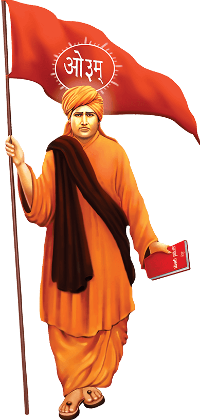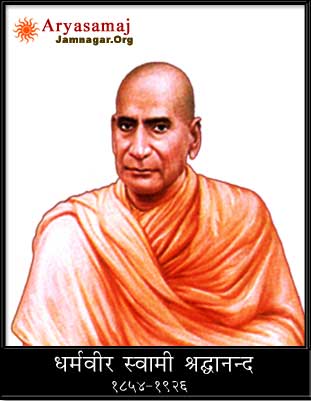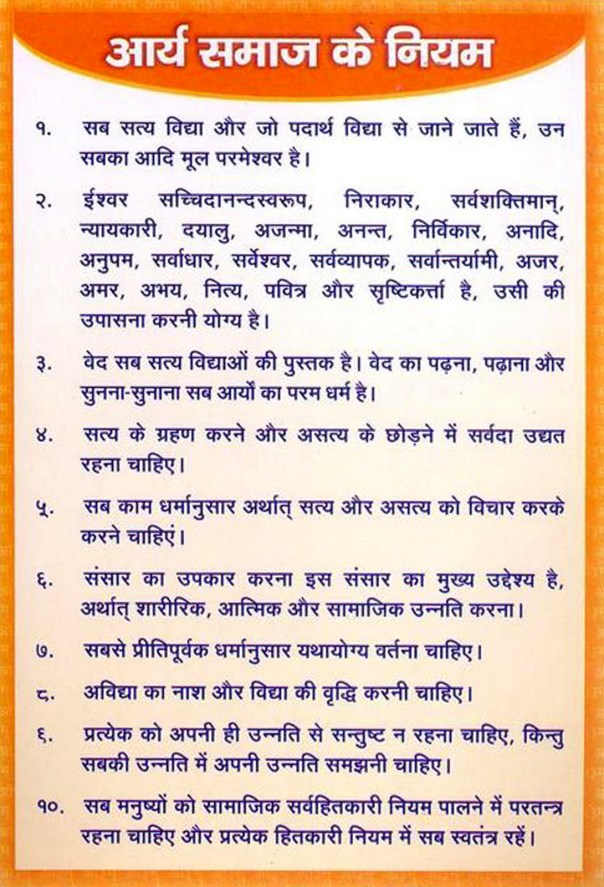Arya Samaj
Arya Samaj (Sanskrit: ārya samāja आर्य समाज “Noble Society” Hindi: आर्य समाज, Bengali: আর্য সমাজ, Punjabi: ਆਰੀਆ ਸਮਾਜ, Gujarati: આર્ય સમાજ) is an Indian Hindu reform movement that promotes values and practices based on the belief in the infallible authority of the Vedas. The samaj was founded by the sannyasi (ascetic) Dayananda Saraswati on 7 April 1875. Members of the Arya Samaj believe in one God and reject the worship of idols.
Jawaharlal Nehru, the first prime minister of India in his book, The Discovery of India credits Arya Samaj in introducing proselytization in Hinduism.
Foundation
The Arya Samaj was established in Bombay on 7 April 1875 by Dayananda Saraswati (born “Mool Shankar” in Kathiawar, Gujarat 1824 – died Ajmer, 1883)
An alternative date for the foundation of the samaj is 24 June 1877 because it was then, in Lahore when the samaj became more than just a regional movement based in Punjab.
Vedic schools
Between 1869 and 1873, Saraswati began his efforts to reform orthodox Hinduism in India. He established Gurukul (Vedic schools) which emphasised Vedic values, culture, Satya (virtue) and Sanatana Dharma (the essence of living). The schools gave separate educations to boys and girls based on ancient Vedic principles. The Vedic school system was also to relieve Indians from the pattern of a British education.
The first Vedic school was established at Farrukhabad in 1869.[7] Fifty students were enrolled in its first year. This success led to the founding of schools at Mirzapur (1870), Kasganj (1870), Chhalesar (Aligarh) (1870) and Varanasi (1873).
At the schools, students received all meals, lodging, clothing and books free of charge. Discipline was strict. Students were not allowed to perform murti puja (worship of sculpted stone idols). Rather, they performed Sandhyavandanam (meditative prayer using Vedic mantras with divine sound) and agnihotra (making a heated milk offering twice daily).
The study of Sanskrit scriptural texts which accepted the authority of the Vedas were taught. They included the Vedas, Upanishads, Aranyaka, Kashika, Nirukta, Mahabhasya, Ashtadhyayi, Darshanas. The teaching was open to girls and to children who were not of the Brahmins class.
Dayanand had difficulty finding qualified teachers who agreed with his views on religious reform. There were few textbooks which he considered suitable. Funding was sporadic, attendance fluctuated and students did not achieve desired standards and so some schools closed soon after opening. The last remaining school at Farrukhabad closed in 1876.



